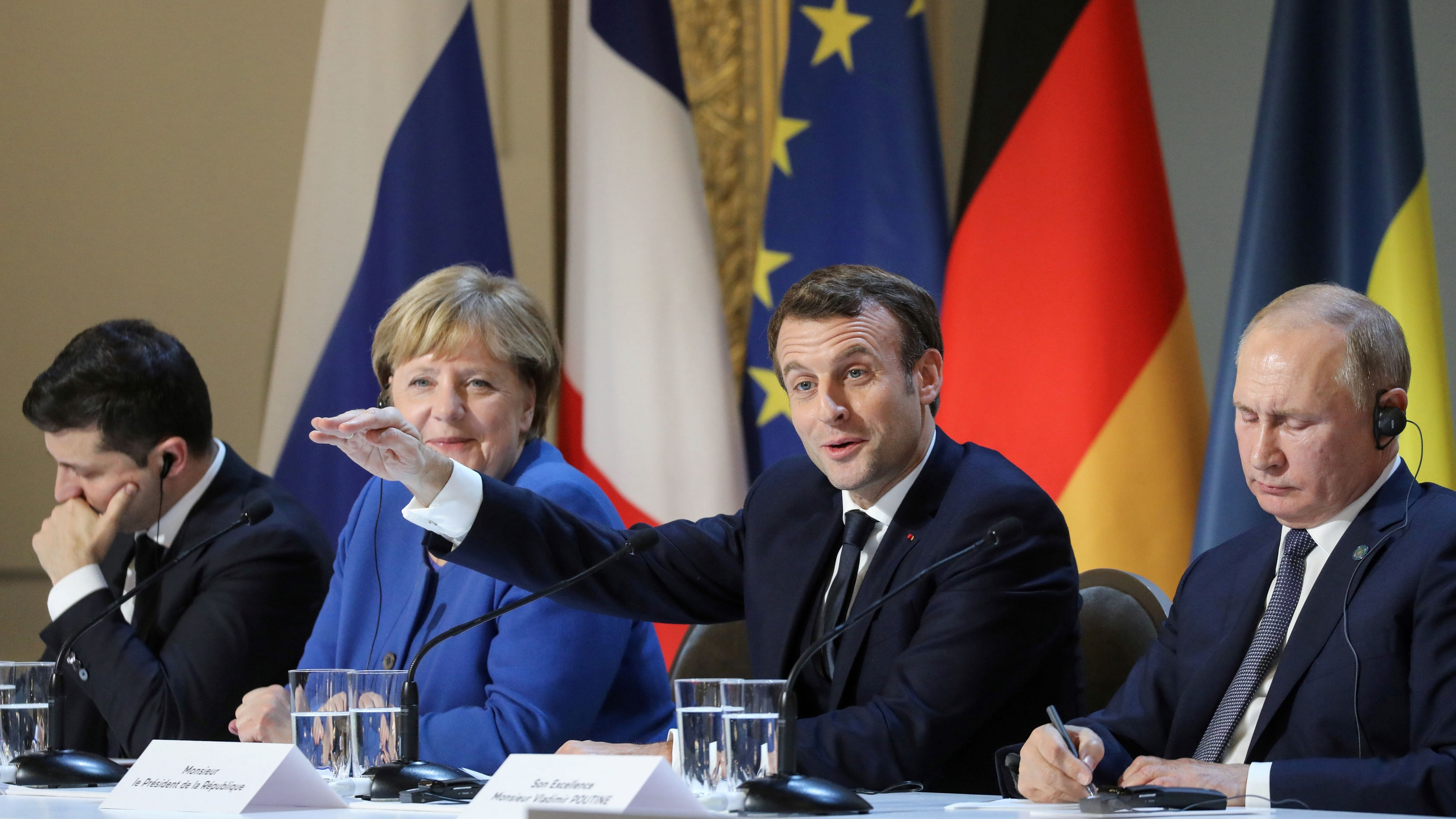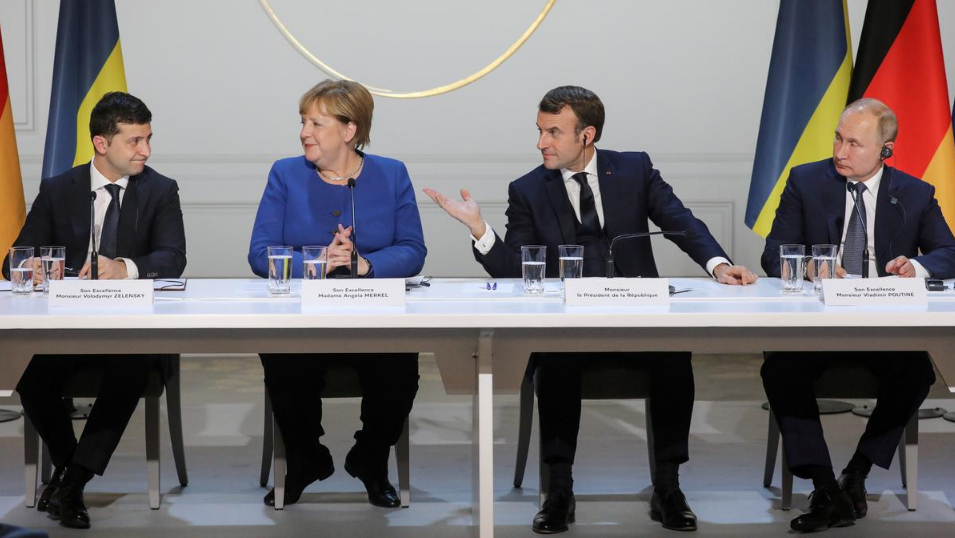
Ukraine and Russia agreed to a "full and comprehensive" ceasefire in eastern Ukraine by the end of the year during the Normandy Summit, held in Paris on Monday. But the landmark meeting between Russian President Vladimir Putin and Ukrainan President Volodymyr Zelenskiy fell short of a wholescale breakthrough.
Besides the ceasefire, the two sides agreed to another prisoner swap, to the withdrawal of troops from three additional locations and to remove mines from the conflict zone.
The summit, attended by the leaders of France, Germany, Russia and Ukraine, also the first in more than three years, aimed at advancing efforts to restore peace to eastern Ukraine.
The agreement is seen as a first step towards ending a near six-year war in Eastern Ukraine, but leaders acknowledged more work is needed.
"I say very openly we have a lot of work to do, but my feeling from this meeting here today is that there is goodwill to resolve difficult questions," said German Chancellor Angela Merkel, who along with France brokered the talks. "And this goodwill is always needed if you want to solve political problems."
Read more:
Will the Normandy summit resolve the Russia-Ukraine conflict?
Putin hails Paris summit as 'important step' to ease Ukraine conflict
Monday's summit mostly reinforced the 2015 Minsk peace deal, but there are still political problems to solve. Ukraine and Russia failed to tackle such crucial issues as when local elections will take place in the Donbas region or when Ukraine will regain control of its borders.
"I would like to outline a number of principles which I will never violate as a president of Ukraine and with which Ukrainian people will never agree," said Zelenskiy. "First, there is no chance for federalization. Ukraine is a unitary state."

(L-R) Ukrainian President Volodymyr Zelenskiy, German Chancellor Angela Merkel, French President Emmanuel Macron and Russian President Vladimir Putin attend a joint news conference after a Normandy-format summit in Paris, France, December 9, 2019. /Reuters Photo
(L-R) Ukrainian President Volodymyr Zelenskiy, German Chancellor Angela Merkel, French President Emmanuel Macron and Russian President Vladimir Putin attend a joint news conference after a Normandy-format summit in Paris, France, December 9, 2019. /Reuters Photo
The biggest stumbling block remains over the roadmap for the future. Zelenskiy wants elections to be held only after Ukraine has regained control of its territory. Putin wants the exact opposite, saying achieving a ceasefire needs to be synchronized with the implementation of political reforms in Ukraine, envisaged in the Minsk agreements.
"In the first place, this means introducing changes to the country's constitution, which give Donbass – the Donetsk and Luhansk regions – a permanent special status," said Putin. "Agreement on the special status of certain areas of Donbass of course needs to be extended. And eventually this norm must become permanent."
This is a red line for many Ukrainians, some of whom fear Zelenskiy, an actor-turned-president, will concede too much to Russia.
More than 13,000 people have been killed in the Ukraine conflict, while nearly four million civilians living in the region have been impacted.
Officials said they will meet again in four months to push forward on unsolved issues.